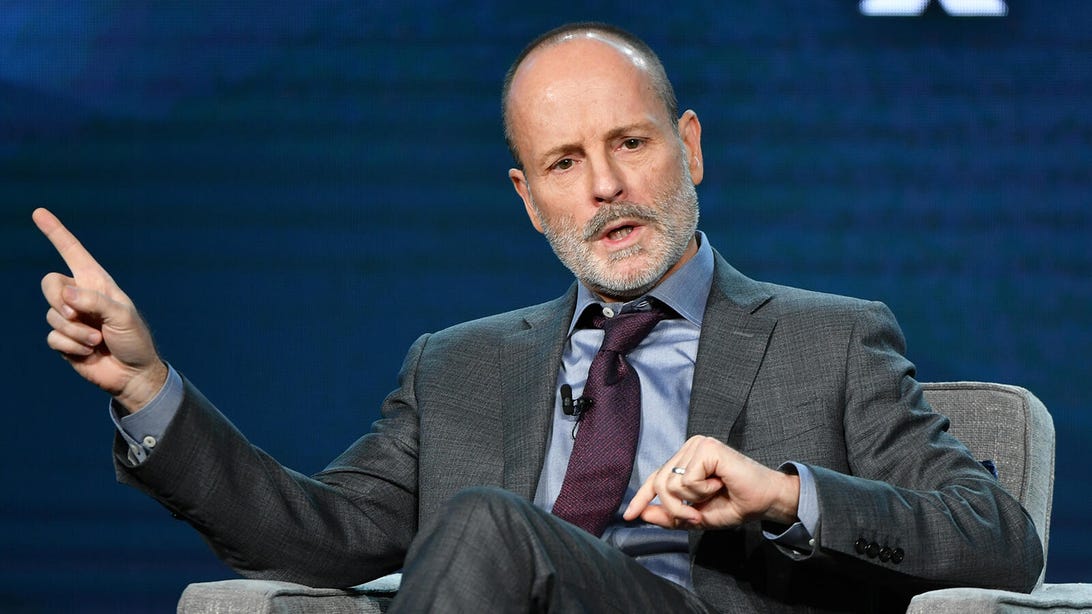Join or Sign In
Sign in to customize your TV listings
By joining TV Guide, you agree to our Terms of Use and acknowledge the data practices in our Privacy Policy.
The Smartest Man in TV Explains Why You'll See Less TV Series On Your Screens in 2024 and Beyond
The FX boss says too many options will lead to fewer options

John Landgraf
Amy Sussman/Getty ImagesPeak TV has officially peaked. That's the message John Landgraf, Chairman, FX Content & FX Productions, had for Television Critics Association members during the 2024 TCA Winter Press Tour this week in Pasadena, Calif.
The executive first coined the term "Peak TV" in 2015 to describe the growing number of scripted TV shows being produced year-over-year as the number of premium cable and streaming services also increased. Landgraf has long predicted that at some point the number of produced TV shows would peak, and the industry would go through a massive change.
That time has come. In a chart critics lovingly refer to as the "Langraph," FX revealed that the number of scripted programs decreased by 14% in 2023, down to 514 from 600. It was a bigger dip that the one in 2020, when COVID-19 impacted production. At the time there was only a 7% drop (to 493 shows), and production recovered to 559 shows the following year.
Landgraf added the drawback was underway before the Hollywood strikes paused productions across the board, and explained there is an overall realignment of priorities as companies fight for viewership, attention and the bottom line.
The translation? We will see significantly fewer TV shows going forward.
"The strikes led to the cancellation of numerous projects and series," he said. "Our latest research estimates show a 31% decrease in original series in 2024 year-to-date. And while I understand this is a very small sample time, and some of the decline may still be related to delays and production strikes, I do believe these numbers are directionally accurate."
The exec cited various factors as to why we're entering this shift, including higher production costs, ballooned salaries for the big-name talent television has recruited in recent years, and too many options when it comes to where viewers are settling down for their entertainment.
"At one point there were more than 60 networks and brands making scripted original programming, which was just as unsustainable and overwhelming to the audience," he added.
Landgraf also addressed the issue of shorter overall seasons, admitting it's something he thinks a lot about. As a series like What We Do in The Shadows wraps later this year after six seasons, he doesn't know whether future series can sustain that kind of longevity.
"I'm really worried about the ecosystem created by the internet," he said. "Everything ever made is available and you have a restless audience that's impatient. If it's not to their taste within three minutes, [they turn it off.]"
Landgraf added that back in the day FX series like It's Always Sunny in Philadelphia and The Shield began with modest budgets and had time to grow audiences, whereas series today need to land out of the gate due to those aforementioned budgets. Engagement is key in a world where attention spans have declined.
"One of my greatest priorities is to try to figure out how to make television," he continued, adding that FX is one of the networks that continues to pursue traditional pilots and development.
"That's not a pejorative. I love episodic comedies and episodic dramas and want to figure out how to make the next big library show."